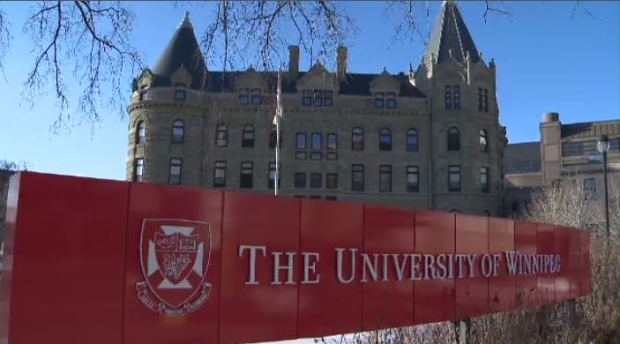U of W launches free online courses on climate change, Indigenous knowledge
 The University of Winnipeg said they take safety very seriously following a number of assaults and thefts on campus over the past month.
The University of Winnipeg said they take safety very seriously following a number of assaults and thefts on campus over the past month.
A series of free, online courses aims to give Manitobans the tools to build climate resilience and adaptive capacity within the province and across the world.
The University of Winnipeg’s Prairie Climate Centre announced the free series Tuesday to coincide with the COP26 summit in Glasgow. Scotland.
“University of Winnipeg’s Prairie Climate Centre has a long-term commitment to public education and climate awareness that fosters real-world opportunities for individuals, communities, and professional organizations to increase their resilience and preparedness,” PCC’s Research Manager Christey Allen said in a news release. “Our team’s approach is deeply participatory, linking climate research and community knowledges, and we’re really excited to offer this training free of charge for diversity partners.”
The courses begin in November with “Climate Change 101” and “Indigenous Knowledges and Two-eyed Seeing.” Courses will continue in December and early 2022, the centre said.
According to PCC, the courses are designed to be accessible to the public, faculty, students, government, and organizations seeking credible information on climate change.
“Climate Change 101” is co-presented by PCC Co-director Dr. Danny Blair and Stephen Muirhead. It is designed as a foundational primer for a large audience, covering key terminology, methodologies, and considerations when thinking about climate science.
“Indigenous Knowledges and Two-eyed Seeing,” on Nov. 10 is guided by Mi’kmaw Elder Albert Marshall from Eskasoni First Nation, who coined the influential term “two-eyed seeing.” PCC said it is an opportunity to hear from one of the world’s leading thinkers on the integration of Indigenous knowledge and Western science to address pressing environmental issues.
“Indigenous knowledges and communities are critical to solving the climate crisis and provide a framework for developing a new relationship with the earth, atmosphere, and each other,” said Brett Huson, a Gitxsan artist and author who is also a research associate at PCC.
The initiative is funded by the Manitoba government and Natural Resources Canada and is part of the Manitoba Climate Resilience Project.
CTVNews.ca Top Stories

DEVELOPING Person on fire outside Trump's hush money trial rushed away on a stretcher
A person who was on fire in a park outside the New York courthouse where Donald Trump’s hush money trial is taking place has been rushed away on a stretcher.
Mandisa, Grammy award-winning 'American Idol' alum, dead at 47
Soulful gospel artist Mandisa, a Grammy-winning singer who got her start as a contestant on 'American Idol' in 2006, has died, according to a statement on her verified social media. She was 47.
She set out to find a husband in a year. Then she matched with a guy on a dating app on the other side of the world
Scottish comedian Samantha Hannah was working on a comedy show about finding a husband when Toby Hunter came into her life. What happened next surprised them both.
Senators reject field trip to African Lion Safari amid elephant bill study
The Senate legal affairs committee has rejected a motion calling for members to take a $50,000 field trip to the African Lion Safari in southern Ontario to see the zoo's elephant exhibit.
'It could be catastrophic': Woman says natural supplement contained hidden painkiller drug
A Manitoba woman thought she found a miracle natural supplement, but said a hidden ingredient wreaked havoc on her health.
Police in Paris detain a man wearing fake explosives vest at Iran's Consulate
A man wearing a fake explosive vest and making threats was detained Friday outside the Iranian Consulate in Paris after police locked down the area, authorities said. His motive was unclear.
DEVELOPING G7 warns of new sanctions against Iran as world reacts to apparent Israeli drone attack
Group of Seven foreign ministers warned of new sanctions against Iran on Friday for its drone and missile attack on Israel, and urged both sides to avoid an escalation of the conflict.
CFIA monitoring for avian flu in Canadian dairy cattle after U.S. discoveries
The Canadian Food Inspection Agency is encouraging veterinarians to keep an eye out for signs of avian influenza in dairy cattle following recent discoveries of cases of the disease in U.S. cow herds.
After hearing thousands of last words, this hospital chaplain has advice for the living
Hospital chaplain J.S. Park opens up about death, grief and hearing thousands of last words, and shares his advice for the living.
































